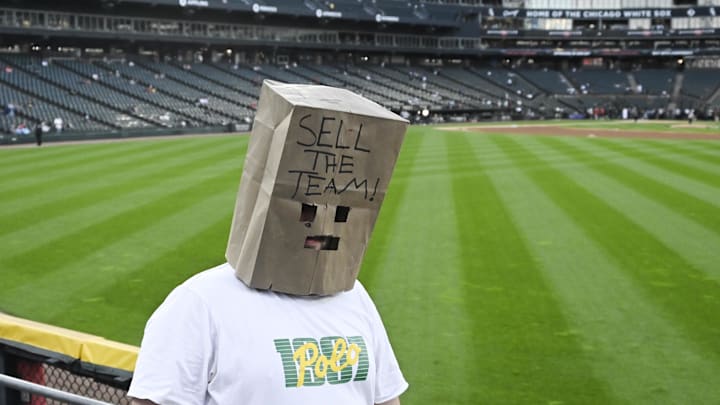Chicago White Sox fans ramped up the calls for the team to be sold after enduring a miserable and historic 121-loss season.
A recent report in the Athletic suggests owner Jerry Reinsdorf might finally give up his prized possession, which he has run into the ground.
It comes with a possible catch--the team could be relocated, especially if rumored bidder Dave Stewart acquires the team.
The former Oakland Athletics ace and Arizona Diamondbacks general manager has been heavily involved in trying to get an expansion team in Nashville. Now that his hometown Athletics has left Oakland, there is speculation he could buy a franchise, relocate it to the Bay Area, and return baseball there.
He was involved in a bid to buy partial ownership of the Oakland Coliseum with the angle of redeveloping into a suitable park to keep the A's in Oakland. However, he could just want to own any team as it would mean he would be the first majority black owner in baseball.
However, if his group does end up purchasing the club, relocation rumors will persist unless Stewart declares the team is staying as Chicago's AL team.
Relocation rumors are not something new to the fanbase.
At least, to the generations of fans who were around in the 1960s, 1970s, and 1980s.
This wouldn't be the first time the spectre of relocation haunted a potential Sox sale. Bill Veeck came in at the 11th hour in 1975 to prevent a sale that would have moved the team to Seattle. Failed sale to De Bartolo in 1980 had the poss. of a move to New Orleans or Denver
— Rob Hart (@RobHartWBBM) October 16, 2024
There was also the potential that the Sox would move to Milwaukee in the late 60s. The team even played a few home games at Milwaukee County Stadium in 1968 and 1969 as a trial run.
Reinsdorf infamously nearly moved the club to Tampa in the late 1980s until an 11th-hour deal was cut by state lawmakers to build Jerry New Comiskey Park, now Guaranteed Rate Field.
The status of Guaranteed Rate Field is at the center of whether the Sox would stay in Chicago long-term or be moved to another market.
